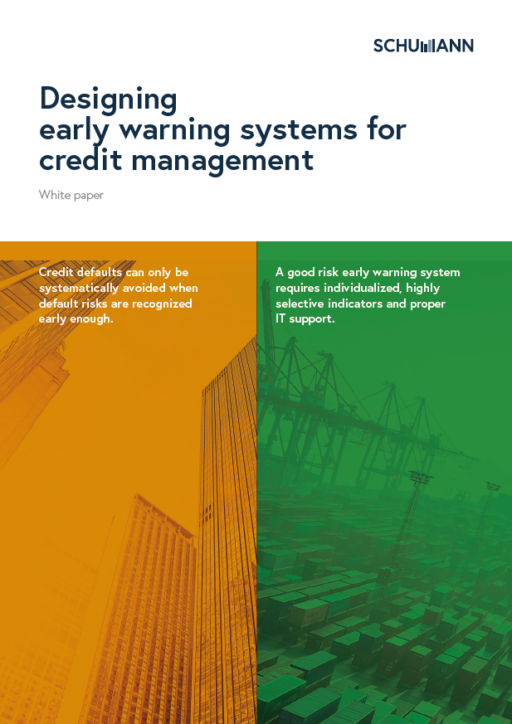The early recognition of risks is more important than ever at the moment in the Corona crisis . An early warning system in credit risk management provides significant support in minimising risks. Early detection or early warning systems can be found in very diverse areas of riskmanagement. What they all have in common is the goal of recognizing threats to survival early enough to take action and avoid them.
In factoring, the focus of credit risk management lies on the identification of negative developments in a debtors‘ creditworthiness. The suspension of the obligation to file for insolvency, e.g. in Germany, only applies to companies that get into difficulties because of the epidemic and its consequences. However, a significant deterioration in payment behaviour is already measurable. Debtors are paying their bills later and later. It could well be that at the end of the crisis, in view of the accumulated debts, many companies will consider restructuring themselves through insolvency proceedings to reduce their debts. The quality of an early warning system determines its success. Carefully selected key figures and indicators as well as permanent automated monitoring of payment experiences and credit risk information form credit rating agencies and trade credit insurances are fundamental requirements in credit risk management software.
Credit risk management systems are of crucial importance for factoring companies right now. While factoring companies have the important function of providing liquidity, they must also have the best possible credit risk management of their own.
Furthermore, technology is an important driver of modern business models. Modern digital straight through processes enable urgently needed transformations of traditional business and the development of new financing models for new target groups, e.g. SME. Especially SME will suffer from the Corona crisis. Automatic, intelligent onboarding and credit risk management processes enable compliant and fast decisions within seconds for this target group to provide liquidity.
It is time to invest in credit risk solutions and avoid making mistakes like during the last global financial crisis, which culminated in the collapse of the major US bank Lehman Brothers on 15 September 2008. The corona crisis meets with an already cooling global economy in 2019, trade conflicts, a declining willingness to invest and a car industry that is undergoing a transformation process. The consequences for the national economies are not yet foreseeable.

